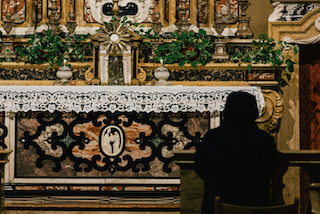
Psalm 100 serves as a solid basis for preaching the Gospel. The joy of the Good News is becoming aware of our relationship with God. If this is not the foundation of the desire to share our faith with others, then inevitably, we are going to push our own agendas. Our own limited versions of spirituality become unstable ground for others, leading to their inability to attain the relationship with God celebrated in Psalm 100.
When “gaining souls” is about checking boxes, making sure that people know how to recite the right prayers properly, this can lead to a shallow faith that does not support living in a world that is confusing and frightening. The faith is reduced to a series of performative actions rather than an expression of joy— joy that we belong to God.
Regretfully, homilies can often be about pushing the preacher’s spirituality onto captive congregations. The preacher’s political stance or his own religious propaganda can hijack the message of the Gospel completely. Or, just as unfortunate, pulpits can become platforms for theatrical displays that distract the people from the mystery of the Gospel, a mystery that requires careful attention and resolute belief in action. Perhaps “the agenda- driven” homilies stem from a fear that the faithful will walk away otherwise.
As Pope Francis made his penitential pilgrimage to Canada to apologise for the harm inflicted by Catholic institutions on indigenous people and their children, a religious scholar, Sister Nuala Kenny, raised some deeply troubling questions in an article* published in La Croix International:
- Why were the schools such a profound contradiction to Jesus’ teaching and revelations of a loving God for all persons, lands, and times?
- How did evangelisation and colonialism become so maliciously intertwined as early as Pope Nicholas V’s 1455 Doctrine of Discovery, establishing undiscovered lands as terra nullius or nothing until discovered and occupied by Christians?
- Can we accept that this established white Western privilege and racism at the heart of the Church in Rome?
Sr Nuala added.“In the schools, there was a forced Christianisation to ‘civilise’ the Indians and formal baptisms, but no true catechesis where students were led to know Jesus and Gospel values.”
How did some preachers of the Gospel get it so wrong? In preaching the word of God today, is there a sincere intention for true catechesis where children,catechumens and even baptised Catholics are “led to know Jesus and the Gospel values”? Do Christians, especially preachers, know and espouse the Gospel values?
In another La Croix International article**, Michael Dyer added to Sister Nuala’s questions:
- How did the bishops,superiors of religious orders, government officials and police manage to turn a blind eye to such abuse?
- What factors contributed to a toxic culture where human beings did evil things, but thought they were doing good?
- How do I personally, and as a member of the Mystical body of Christ, the people of God, make reparation for what is not only individual, but social sin?
The third question is personally troubling. Was it solely the Pope’s responsibility to make the reparation? What about the Mystical body of Christ that is living the Gospel in this part of the world? This surely cannot just be someone else’s issue.
Many people attend church services seeking to hear a message that will give them the will or the strength to live courageously through their difficulties and challenges. If only they are able to depart from church services with hearts made joyful by authentic preaching. If only the truth that we unconditionally belong to and are loved by the Divine anchors them in their actions. Then they will meet each day with the heart of Psalm 100.
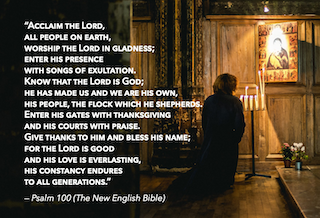
When the friars from Malaysia and Singapore gathered for our assembly in July, we were encouraged to restore the Gospel within us. The message was simple: we cannot preach what we do not have. We cannot bring the joy of the Gospel to others when we ourselves do not know what this joy is. We may have the ability to preach or perhaps a reasonable knowledge of the scriptures, but these can distort the message of the Gospel when there is a great divide between the lived faith and preached faith.
By God’s grace, let history be our teacher.
Friar Clifford Augustine OFM
* Canada’s wounded elders, La Croix International, 25 July 2022

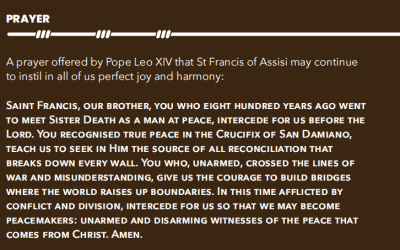

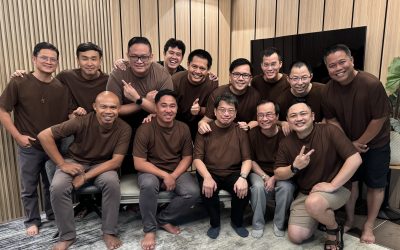
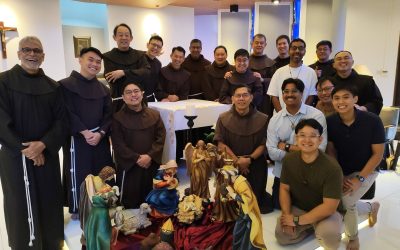
0 Comments